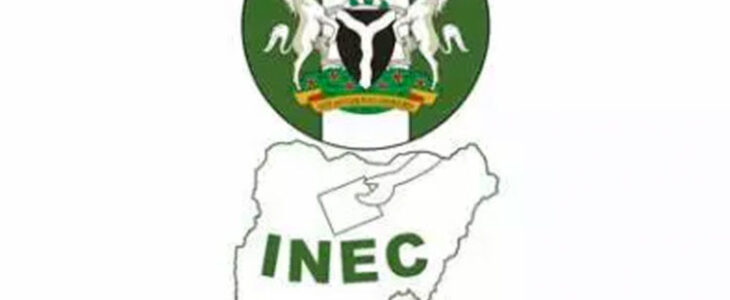
Ahead of the 2023 elections, the Independent National Electoral Commission (INEC) yesterday reiterated that all political parties must inform it of any transfer of funds or other assets to them from outside Nigeria within 21 days of receipt.
It also directed political parties to notify it of the schedule of their rallies and processions at least 10 days ahead, and to also inform the police about such activities.
These are contained in the guidelines for the Conduct of Political Rallies, Processions and Campaigns, as well as that of Finances and Election Expenses of Political Parties, Candidates and Aspirants released on Thursday by INEC.

The guideline on rallies states: “Political parties shall transmit to the Commission, through the Electoral Officer at the Local Government Area and the Resident Electoral Commissioner at the State, via a designated portal and also in hard copy, details of the schedule of their political rallies and processions at least 10 days to the date of the political rally or procession. The notice shall be jointly signed by the National Chairman and National Secretary of the Political Party.”
The parties are also expected to tell INEC the date, time, venue of the rallies; agenda and list of members of the Organising Committee and Police approval within the jurisdiction of the campaigns, within a minimum period not later than 10 days to the commencement of their campaigns.
According to the guideline, “Political parties must issue in writing a notice to the Commissioner of Police of the State or the Federal Capital Territory indicating the exact venue and time of the rally or procession and pledging peaceful conduct and control against violence or public nuisance.”
The guideline also states that campaigns by parties and their candidates must be based on their constitution and manifestoes, and must comply with any regulations issued by the National Broadcasting Commission (NBC), as well as COVID-19 safety protocols.

For party finances, INEC said political parties must inform it of the transfer of any funds or other assets sent to them from outside Nigeria within 21 days of receipt.
The finance guideline reads: “The maximum amount of money or other assets that an individual, a group of individuals or an entity can donate to a political party or aspirant for an election shall be N50,000,000. A political party shall not accept any monetary or other contribution which is more than N50,000,000 except it identifies and discloses the source of the contribution to the Commission.
“Every political party that participated in an election shall submit to the portal designated by the Commission an audited report of its election expenses within six months after an election. The reporting period shall commence 360 days to, and including, the election day.
“Every political party sponsoring the election of a candidate shall submit to the portal designated by the Commission a report of the contributions made to it by individuals and entities within three months after the announcement of the results of an election. The report shall indicate the names, addresses, occupation of donor (s) and the amount.”
Section 88 of the Electoral Act provides that the maximum election expenses to be incurred by a candidate at a presidential election shall not exceed N5,000,000,000; that the maximum amount of election expenses to be incurred by a candidate in respect of governorship election shall not exceed N1,000,000,000, while Section 88(8) provides that “No individual or other entity shall donate to a candidate more than N50,000,000.”
INEC’s National Commissioner and Chairman, Information and Voter Education Committee, Festus Okoye stated that the Commission had uploaded the guidelines on its website and social media handles while copies will be made available to political parties, civil society groups, the media and other critical stakeholders.
Okoye reminded all political parties of their obligation to submit the required reports to the Commission in accordance with the provisions of Section 90(4) of the Electoral Act 2022 and the applicable sanctions for failure to comply as provided in Section 89(4) of the Electoral Act.
The Commission, according to the INEC National Commissioner, also approved the reappointment of the Secretary of the Commission, Mrs. Rose Oriaran-Anthony, for a second and final term of four years, with effect from 7th December 2022, in accordance with Section 8 of the Electoral Act, 2022.
Oriaran-Anthony hails from Edo State. She holds a Bachelor of Education (B. Ed) degree in Language Arts from the Ahmadu Bello University, Zaria, a Master’s degree in Public Administration (MPA) from the University of Abuja and another Master’s degree in Public Communication and Public Relations from the University of Westminster, in the United Kingdom.
Oriaran-Anthony is the second female Secretary of the Commission and the first to have her tenure renewed.
She is a long-term staff of the Commission and has served as Public Affairs Officer, Assistant Director (Information and Publicity), Deputy Director (Voter Education) and Director (Civil Societies Liaison).
Her last posting was Administrative Secretary in Delta State before her first appointment on 5th December 2018.
Credit: This Day
